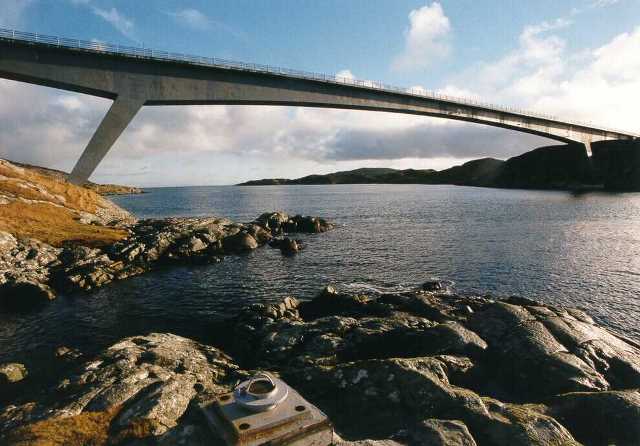
Nigel Bruce is an Estimating Manager with BAM Nuttall and has over 30 years of experience in civil engineering. We spoke to him to find out more about his own route into the industry, how it has changed over the years and the biggest challenges that he sees it facing in the coming years.
Can you give us an overview of your route into the civil engineering sector?
I left school at the end of 6th year, when I was 18, and decided to take a year out. I’d been accepted for a place at Heriot Watt University but deferred it for a year. Partly to take a break from academic learning and partly to get some actual work experience in the civil engineering line to find out what it would be like. It’s common now for people to take a year out but it was more unusual at that time. In 1983, when I graduated, I had three job offers and decided to accept the one from Balfour Beatty. The main deciding factor was probably the quality of the graduate training scheme that they had in place.
Is there a particular type of project that you’ve come to specialise in or is it a case of being adaptable to the type of work that’s around?
I was always keener on working on the contracting side of things rather than on the design side of engineering. I wanted to be working on the actual construction. In terms of projects, I’ve done a lot of work in the marine sector, in which I’ve worked on projects such as the construction of harbour jetties, and the rail sector, which can be a challenging one due to the difficulty of getting access. Understandably, the railway operating companies want to keep the trains running with as little disruption to services as possible.
Engineers have the opportunity to work on projects that can make a huge difference to the environment, to travel costs, to energy costs – effectively, to people’s lives. Is there a particular project that you’re most proud to have been involved in?
Yes, I was involved in the construction of the bridge running between the Isle of Harris and the Isle of Scalpay. It was an important project, connecting people of one of the smaller Western Isles (Scalpay) to the largest (Lewis and Harris). I worked on the project between 1995 and 1997, when it was officially opened by Tony Blair, who was the Prime Minister at the time.

Different projects can probably take you across Scotland or beyond – do people pursuing a career in civil engineering have to accept that they’ll spend a certain amount of time away from home?
You do have to be open-minded about travel. I’ve mainly worked in Scotland but in 2008 I was working just outside of London for 12 months. When I started in the industry it was just taken as the norm that there would be some travel involved in the job.
What has been the biggest change that you’ve noticed during your time in the industry?
One change is that people coming into the industry now can be less keen to travel for the job. There’s possibly less loyalty to companies as a result of this, with people being more willing to move to a different company to avoid having to be transient for their job.
The biggest change though – and a positive one – would be the increased emphasis on health and safety. There are still accidents in the industry and people do still, sadly, suffer injuries or even death as a result of their work. However, the changes to working methods, safety culture and working hours to improve safety standards are absolutely a change for the better.
Is there one feat of engineering that you wish that you could have been involved with?
There was a harbour regeneration project in the Bahamas that would have been nice to work on! Beyond that, it would have been nice to be involved in an iconic project like the Forth Crossing that’s being constructed at present.
What advice would you give to people taking their first steps in civil engineering?
It’s all about attitude. I would encourage them to make the effort to get some on-site experience. Whether good or bad, it’s something that you’ll learn from. Projects may be taking place some distance from their homes but they should be willing to travel.
Do you have any predictions for the future of civil engineering?
I think there will be more focus on reducing the amount of waste generated by projects. We can’t continue to use landfill sites to dispose of waste because they’re both harmful to the environment and too expensive.
I also anticipate more thought being given to the damage that some projects can cause to wildlife habitats. Windfarms in the Highlands have caused large areas of peatland to be dug up and destroyed. These are situations that will have to be looked at more closely.
Thanks to Nigel for speaking to us and giving us the benefit of his experience and his insights regarding the future of civil engineering. Scotland has a proud tradition of producing engineers and it’s a tradition that we at s1jobs are keen to see maintained.
Photographs supplied by interviewee.
